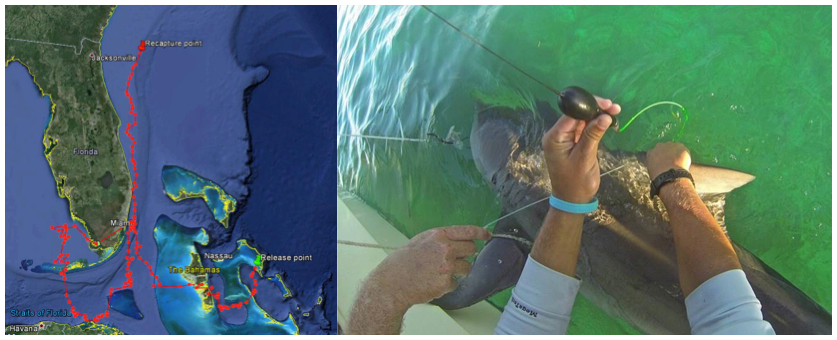The Cape Eleuthera Institute’s Shark Research and Conservation Program has just started to receive data back from the satellite tags deployed last winter onto five female bull sharks. These transient sharks come to The Cape Eleuthera Marina each November and spend around four months inhabiting the shallow marina waters where fishermen clean their daily catches. Their habitat occupation and use of space beyond Cape Eleuthera has remained a mystery until now.

The migratory routes of these animals has been speculated due to the necessity for females to seek freshwater in order to pup, however, the first track we have received reveals a long and exciting journey via Cuba and the Florida Keys. The highly migratory nature of this species creates challenges for conservation and management efforts as they travel across international boundaries with differing levels of protection.
Research efforts at The Cape Eleuthera Institute in collaboration with Microwave Telemetry will increase our understanding of the species by elucidating critical information about their use of space and seasonal habitat occupancy.